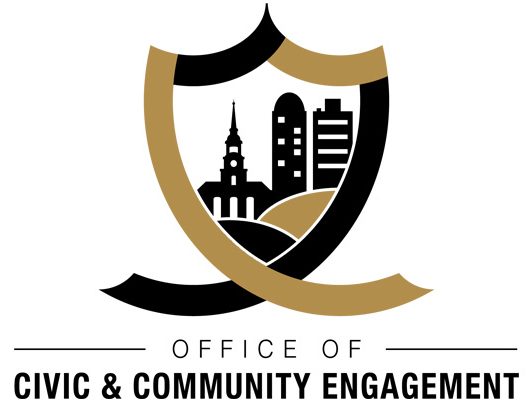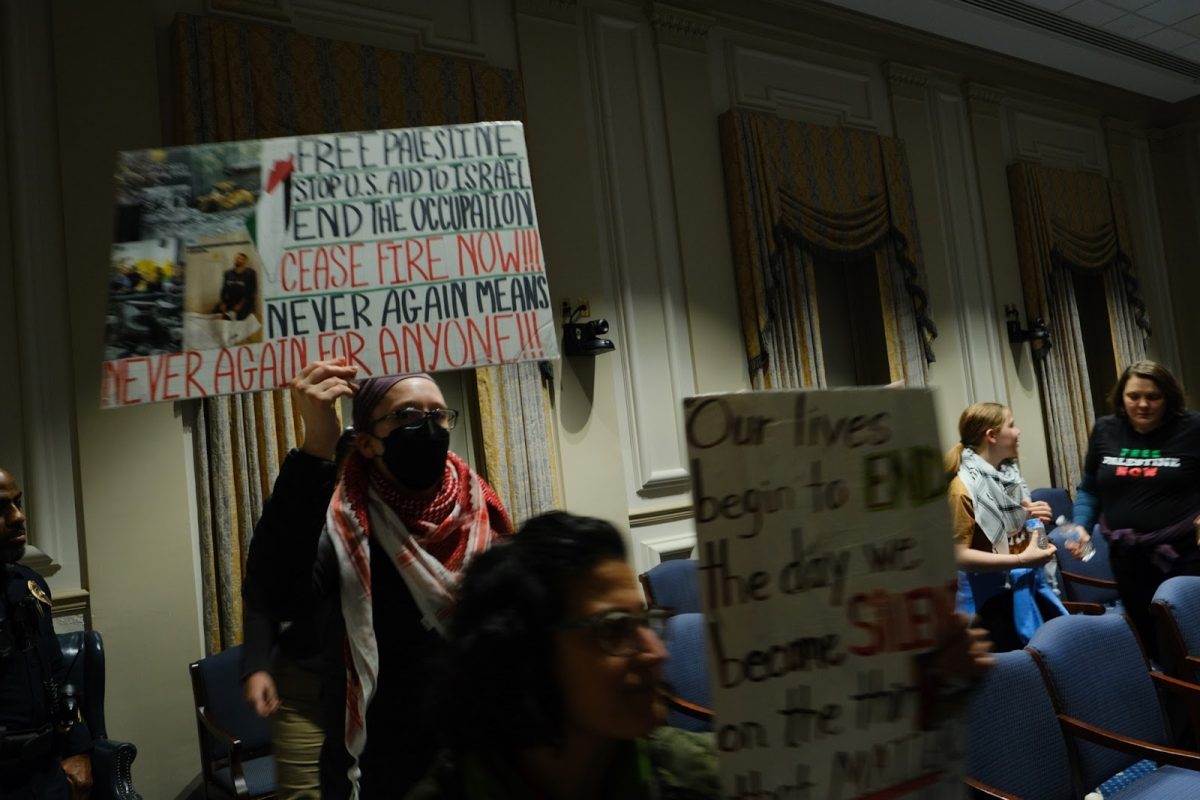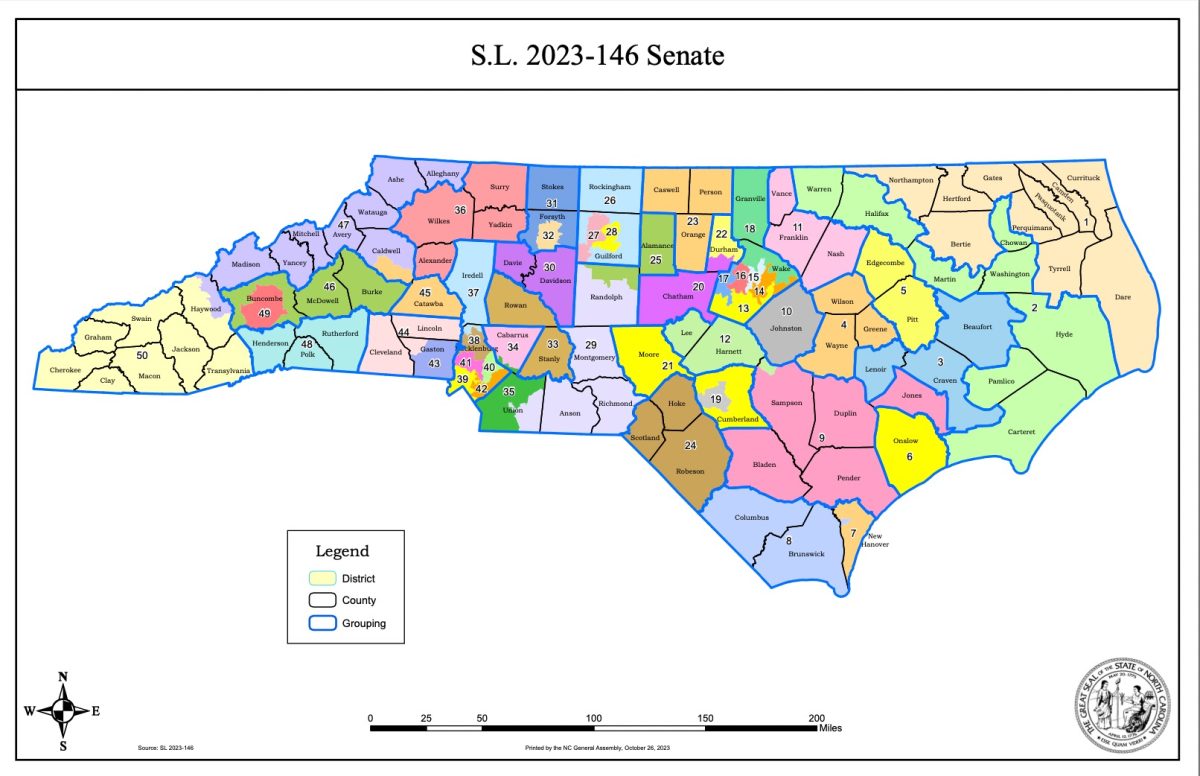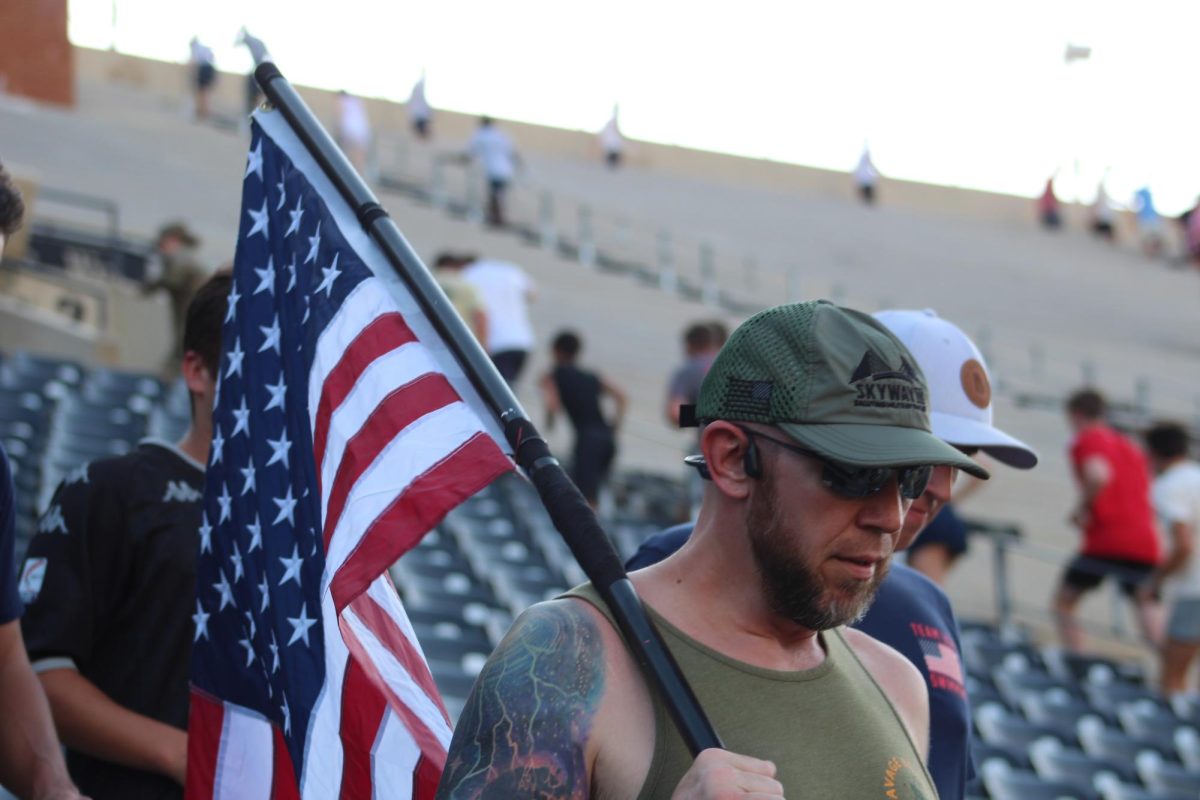With the theme “On Common Ground: Embracing Our Voices” at the foundation of the event, the Wake Forest and Winston-Salem State (WSSU) communities joined together on Jan. 21 to celebrate the life and legacy of Dr. Martin Luther King Jr. Alongside student speakers and performers, CNN political commentator and keynote speaker Angela Rye addressed the crowd on the everlasting importance of the holiday.
Immediately eliciting laughter and applause throughout the crowd, Rye took the stage and asked audience members to sing “Happy Birthday” as well as tell their neighbor they were “the real M.V.P.”
Although she began her speech with an abundance of humor, Rye quickly dove into discussing King’s legacy and present-day importance.
“We see pictures of sit-ins, and we see the ‘what’ but we often miss the ‘why.’ Dr. King worked diligently to draw our attention to the ‘why’,” Rye said.
By tying in the role that students played in bringing criminal reform and the Black Lives Matter movement to the national stage, she noted that King always knew that “young people are catalysts of change.”
Much of the rest of Rye’s speech was tasked with breaking down the difference between “token integration” and “meaningful participation.” In King’s book Why We Can’t Wait, he describes “token integration” as the minimal and inadequate acceptance of black individuals into society. Rye argued that this is still taking place today.
“For black folks, [token integration] is when we want to become the first but were not worried about the next, when we accept the legacy of the one and only [rather than] the legacy of the first,” Rye said.
Instead, she argued, individuals must engage in “meaningful participation” to be able to change society and stand, as the theme suggested, on common ground. Within this idea, Rye discussed the importance of allyship.
“Allyship is not saying all lives matter, allyship is not requiring that my obstacle is your challenge and obstacle, allyship is not saying that we shall overcome, but not ever exercising your privilege to make sure this is done, allyship is not whitewashing MLK,” Rye said.
To give an example of “meaningful participation,” Rye discussed her father’s activism and his work towards getting the NFL, in which 70 percent of the players are black, to put at least 10 percent of their money in black-owned banks. Despite these efforts, Rye said that we have not yet completely achieved “meaningful participation.” Giving examples from North Carolina, she listed statistics such as the following: 38 percent of the state’s black children are living in poverty, black households have on average 6 percent of the wealth possessed by white households and black students make up 26 percent of public schools but account for 51 percent of school suspensions.
“When a train has passengers, there’s a conductor, there’s always a conductor, but in particular when the train has passengers there certain things that conductor says,” Rye said. “So in addition to the bells and the horns to warn you if you are standing idly by or if you’re in the way and not moving, not acting, not working towards the common cause, the conductor says what? What does a train conductor always say? ‘All aboard?’ The conductor says all aboard, not some aboard, the conductor says all aboard. We need to get on the train because its moving. We are heading towards a collective purpose together. We are headed to make change together. We are headed in the same direction, and trying to reach the same destination, at least arguably, if we want to be on common ground, and embrace our voices.”
Rye ended her speech by bringing up the Netflix movie Bird Box, which follows an apocalypse in which individuals wear blindfolds to avoid being exposed to deadly monsters.
“But what I found was me not watching didn’t make it go away, it just made me uninformed,” Rye said. “I was out here trying to ‘bird box.’ Me not watching only hardened my heart, and it turned me inwards. I had my back towards the people who needed it the most. Can you imagine the amount of people who said they couldn’t watch during slavery, the Trail of Tears, Japanese internment? And it still happened. I dare you to take your blindfold off.”
Before Rye spoke, the night began with opening remarks from senior Liz Ramirez and WSSU student Taylor Walker. Positioning the 19th annual celebration within both time and space, they told the story of Winston-Salem’s first sit-in on Feb. 8, 1960. With both black and white individuals participating, they remarked on the unique instance of racial allyship during that time period.
As WSSU is a historically black university and Wake Forest is a predominantly white institution, both Chancellor Elwood Robinson, of WSSU, and President Nathan Hatch remarked on the importance of allyship and collaboration to celebrate Martin Luther King Jr. Day.
“[Today] is about thinking about what we can do together and individually,” Robinson said. “Serving those who cannot do so for themselves, those who stand with their backs against the wall. So, what will we do in our day-to-day activities — will we follow the dream?”
Hatch also commented on the important role that students can play in national movements, which he first observed as a college student listening to King’s “I Have a Dream” speech.
“With each line in this speech, he revealed his hopes for what we can do if we join together,” Hatch said. “These were powerful ideas especially for a college student then and they are still powerful ideas for all of us now.”
The 2019 recipients of the MLK “Building the Dream” award were also announced at the event. Associate Professor of performance Brook Davis and Senior Kayla Heilig were the Wake Forest recipients and Associate Dean of Campus Life LaMonica Sloan Wilhelmi and Junior A’daria Moffett were the WSSU recipients.
“MLK’s legacy reminds us that there is much work to be done, and in this moment of reflection and remembrance, a person may find themselves inspired to seek change and to harness the same energy and drive that MLK embodies,” Heilig said.














